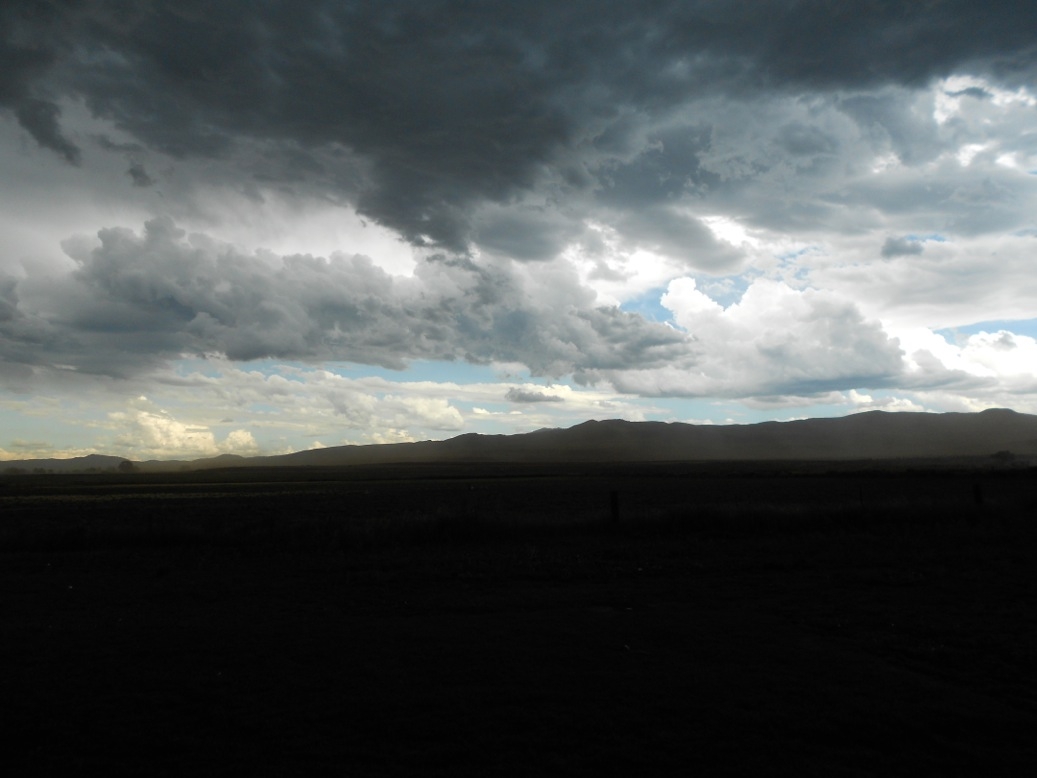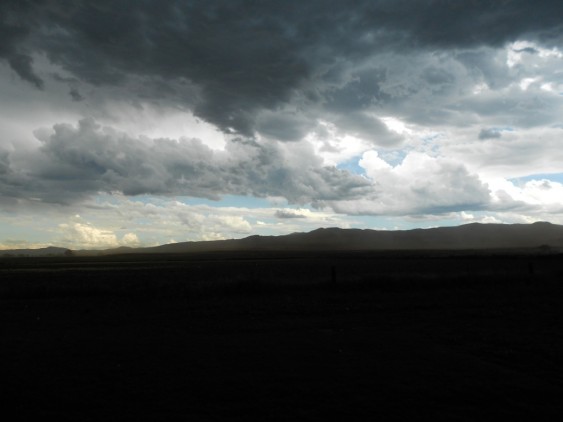Guest blogger Mark Trahant, a member of Sightline’s board of directors, is a writer, speaker and Twitter poet. He is a member of the Shoshone-Bannock Tribes and lives in Fort Hall, Idaho. Trahant’s most recent book is “The Last Great Battle of the Indian Wars.”
I drove across the Northwest this past weekend. A 1,700-mile trip from Idaho to Seattle, returning via rural roads in Washington, and freeways in Idaho and Montana. Along the route I looked at places and wondered, how will life change during the Era of Contraction?
The Era of Contraction takes form in a big way this week. Congress will either enact a Continuing Resolution — a back of the envelope budget for the fiscal year that starts Saturday — or the US federal government will shut down. At the same time Congress’ Super Committee will come up with its own plans to cut even deeper, trillions.
The most visible sign of a federal West (the one that’s frustrating when you’re trying to get somewhere) is that orange barrel on the Interstate highway. It seemed like every hundred miles or so (probably twice that in Montana) a new crop of orange popped up, speed limits went down, and crews were busy improving a road or a bridge.
But this may have been the last summer of such extensive road and bridge repair in the Northwest states. (Unless President Obama’s jobs’ bill passes Congress, but I don’t see the votes for that.) It turns out that driving and road building is a good example of contraction, because nearly every appropriated federal dollar will be less than the year before. State revenue from gas taxes is slumping, too.
Clark Williams-Derry has been reporting for some time that people have already begun to change their routines, spinning their wheels less. He blogs that Oregon officials might scale back highway road work because gas taxes are coming in slower than expected. Williams-Derry writes that:
Gasoline consumption in Oregon and Washington has been pretty much flat since 1999, while vehicle travel flat-lined in 2002. In short, people are driving less; and it’s not just the recession. We warned that these trends could wreak havoc on highway financing. And in only one week, we’ve had 2 confirmations of those warnings.
Even when traveled less, roads connect the West. We’re tied together as citizens of states, tribal nations, as urban or rural people. Roads deliver trade to ports and people traveling to remote vacations.
Yet as I drove through the mountains I wondered how small town life on that road will change when the US Forest Service shrinks. Throughout my drive I saw log-cabin type buildings holding local ranger stations and the like. I saw similar buildings for the National Park Service and the Bureau of Land Management. Now imagine ten percent of those buildings going away. Imagine the buildings mothballed because there are not enough federal employees to staff them. I also passed several dams, one with a security detail busy at work, watching me, watching them. What will contraction mean? One less security car? One fewer maintenance procedure? One-out-of-ten dams gone?
The House Appropriations’ continuing resolution is essentially the budget that begins next week. At least in theory. But the line-by-line cuts reflect what’s about to hit small towns: US Fish and Wildlife, a $168 million cut; state and tribal wildlife grants, minus $90 million; US Forest Service, Capital Improvements & Maintenance, Legacy Road & Trail Remediation loses $39.6 million. And on and on.
Life will change in many bigger cities, too. Idaho Falls, Idaho, and the Tri-Cities of Washington are federal nuclear enterprise zones. In the next couple of weeks hundreds of employees (and contractors) will start to get notice that their services are no longer required. The Tri-City Herald estimates more than 1,000 people will lose their jobs. That’s out of Hanford’s workforce of about 12,000. My bet is Idaho Falls’ situation will be similar.
Even military bases and contractors are getting ready for contraction. Politico reports that the automatic cuts (if the Super Committee does not reach a deal) would be a $950 billion reduction, meaning a reduction of about 150,000 US Army soldiers and Marines. “No mission goes unscathed,” Poltico quoted a staffer saying.
No mission goes unscathed is not just military. It’s the Forest Service. It’s federal support for schools. It’s everything: a restructuring of what we think a government should provide in services.
I pull into my driveway. The journey—orange barrels and all—was familiar. From my house I can see the interstate and a few cars and trucks moving north and south. Still, even if the road remains the same, the journey ahead is not.











Eric Doherty
Mark. Perhaps the era of contraction will be more significant than you outline here. Considering the impact of the end of cheap oil and climate change, maybe the whole economy needs to contract, maybe it will if we plan for it or not. Maybe roadway expansions should stop and more transportation shifted to efficient modes such as electric railways?
Maybe prosperity does not require growth.
Mark Trahant
Good points, Eric.
The only problem is history. During periods of contraction people tend to get mean-spirited. Public works, such as efficient transportation, require a sense of we’re in this together. That ideal is hard to pull off when folks turn inward. I hope I am wrong. Mark